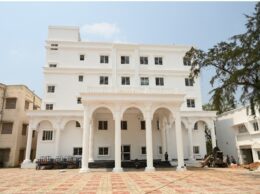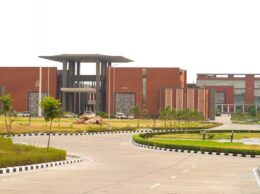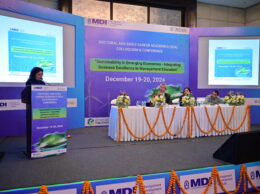New Delhi: The New Education Policy (NEP) is at the final stage while the Ministry of HRD has already shared some inputs of the Draft New Education Policy with public for their comments and views. The Draft of NEP has indicated some measures that would be included in final shape of New Education Policy. The draft report mentioned some key features which will have impact on higher education and research and fellowship programmes. These proposed inputs are expected to be incorporated in the final draft of NEP.
The key features of draft of NEP with respect to high education and research & fellowship programme are as followed: to set up a mechanism for administering National Higher Education Fellowship Programme; to establish a central Educational Statistics Agency (CESA) as the central data collection, compilation and consolidation agency; A national campaign will be launched to attract young talent (M.Phil & Ph.D scholar) into the teaching profession; and Education Commission comprising of academic experts will be set up, every five years to assist the Ministry of HRD.
The policy has proposed to set up an independent mechanism for administering National Higher Education Fellowship Programme. A Central Educational Statistics Agency (CESA) will be established as the central data collection, compilation and consolidation agency with high quality statistical expertise and management information system which will be used for predictive analysis, manpower planning and future course corrections. CESA will also develop solutions of geo-tagging of Higher Education Institutes (HEIs) on various parameters such as, infrastructure available, new constructions and upgradation.
A national campaign will be launched to attract young talent into the teaching profession. In order to attract young talent into teaching profession, a career growth of research students, such as M.Phil & Ph.D scholars, will be created and they will be designated as Academic Assistants and Academic Associates.
Efforts will be made to move towards a university system integrating UG, PG & doctoral studies, with faculty concurrently teaching both at UG and PG levels which will help improve synergies between teaching and research. Universities will be multi-disciplinary in nature and not single discipline specific.
With the objective of encouraging merit and promoting equity, a National Fellowship Fund, primarily designed to support the tuition fees, learning materials and living expenses for about 10 lakh students will be created. The scholarships from this fund will be made available to students belonging to the economically weaker sections. A separate national talent scholarship scheme, covering all subject areas, for meritorious students of all categories selected through a national level examination after class 10 will be introduced.
An Education Commission comprising of academic experts will be set up, every five years to assist the Ministry of HRD in identifying new knowledge areas/ disciplines/ domains as well as pedagogic, curricular and assessment reforms at the global level, which will help to keep up with the change in global scenario and national aspirations.
The draft of NEP outlined that every higher education institution will have a dedicated website for more transparency disclosing standard information of admissions, fees, faculty, programmes, examination results, placements, governance, finance, business tie-ups, management and a report on academic and co-scholastic activities, as well as other relevant information relating to the institution.
Separate education tribunals will be established at the centre and in the states to deal with litigation and address public grievances against government as well as private schools/ institutions. These bodies will be headed by a retired High Court Judge. The tribunals will have the power to follow summary procedures for expeditious disposal of cases.
The National Education Policy (NEP), 2016 envisions a credible and high-performing education system capable of ensuring inclusive quality education and lifelong learning opportunities for all and producing students/graduates equipped with the knowledge, skills, attitudes and values.









